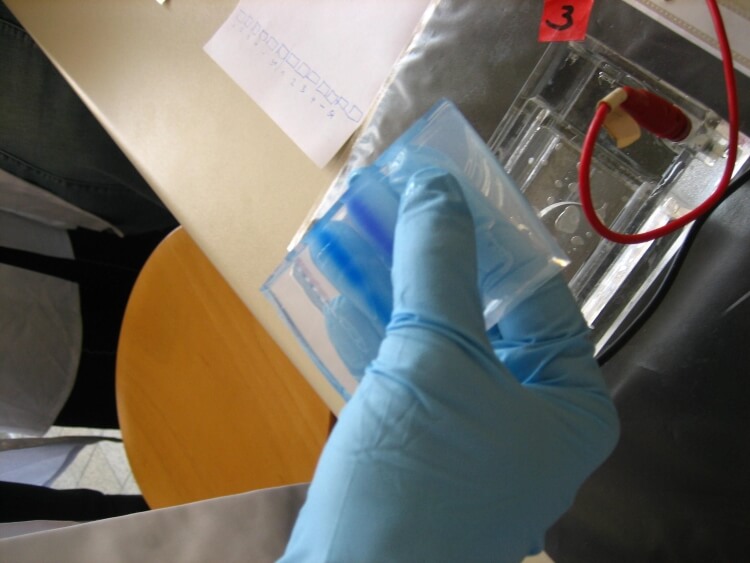6 Months
TARC (Human) OmniKine ELISA Kit
TARC (Human) OmniKine ELISA Kit
Human TARC
8-500 pg/ml
Sandwich ELISA
Research use only
Colorimetric 450 nm
Cell Lysate, Serum and Plasma.
Store the entire kit at 4°C upon arrival.
ELISA Enzyme-linked immunosorbent assays Code 90320007 SNOMED
C-C motif chemokine 17, CC chemokine TARC, Small-inducible cytokine A17, Thymus and activation-regulated chemokine, SCYA17.
To order TARC (Human) OmniKine ELISA Kit, please use the cat '' OK-0307 '' and submit your purchase order by email or by Fax, please contact us by email or Live chat.
Our team of scientists has experience in all areas of research including Life Science, Material Science, Chemical Synthesis, Chromatography, Analytical and many others.
TARC (Human) OmniKine ELISA Kit is able to recognize, detecte and quantificate of endogenous levels of both recombinant and naturally produced Human TARC proteins, within any experimental sample including cell lysates, serum and plasma. It's employed for T-lymphocytes as a chemotactic factor but not monocytes or granulocytes, and it may play a role in activation of mature T-cells and it's development in thymus.
E05 478 566 350 170 or Enzyme-Linked Immunosorbent Assays,E05 478 566 350 170 or Enzyme-Linked Immunosorbent Assays,Human proteins, cDNA and human recombinants are used in human reactive ELISA kits and to produce anti-human mono and polyclonal antibodies. Modern humans (Homo sapiens, primarily ssp. Homo sapiens sapiens). Depending on the epitopes used human ELISA kits can be cross reactive to many other species. Mainly analyzed are human serum, plasma, urine, saliva, human cell culture supernatants and biological samples.
TARC (Human) OmniKine ELISA Kit is produced by Assay Biotech Company. It's also identified by the synonym '' C-C motif chemokine 17 '', it's a Liquid who targets the Human TARC and that able to recognize, detecte and quantificate of endogenous levels of both recombinant and naturally produced Human TARC proteins, within any experimental sample including cell lysates, serum and plasma. It's employed for T-lymphocytes as a chemotactic factor but not monocytes or granulocytes, and it may play a role in activation of mature T-cells and it's development in thymus. It's has a colorimetric 450 nm as a detection method, within the range of 8-500 pg/ml.
